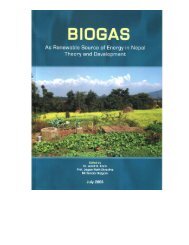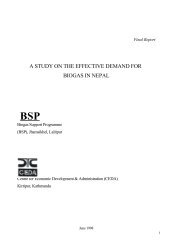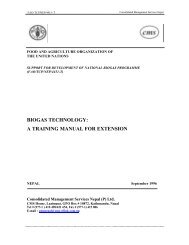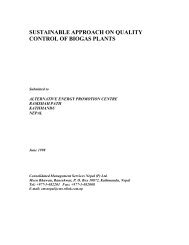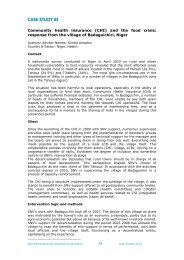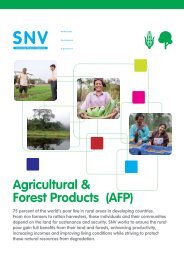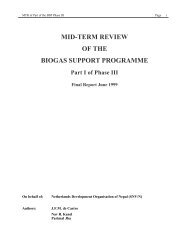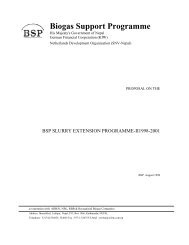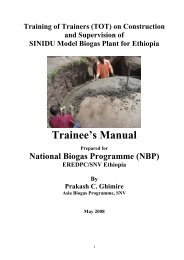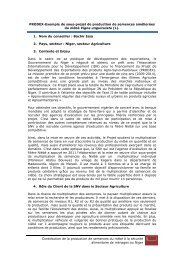School Priorities - SNV
School Priorities - SNV
School Priorities - SNV
Create successful ePaper yourself
Turn your PDF publications into a flip-book with our unique Google optimized e-Paper software.
Community Participation<br />
Hungry students make for poor learners. That’s the conclusion six<br />
districts—Kyankwanzi, Kiboga, Rakai, Butambala, Gomba and Mpigi—<br />
came to with <strong>SNV</strong>’s help.<br />
“We have been<br />
empowered on<br />
our roles by <strong>SNV</strong><br />
because it is<br />
better to teach<br />
someone how to<br />
catch fish than to<br />
give him fish.”<br />
In 2009 and 2010 <strong>SNV</strong> held “multi-stakeholder platforms” (MSPs)<br />
in those districts, comprehensive meetings where everyone with an<br />
interest in education—headteachers, school management committees,<br />
parents, religious leaders, district education officers and other district<br />
and subcounty technical officers—could talk about the state of schools<br />
and collectively seek out solutions. Everyone agreed that a lack of school<br />
lunch was at least partly responsible for poor pupil performance.<br />
To be sure, there were other problems. For one, parents were not<br />
involved in school activities, perhaps because they did not know what<br />
their role in the education system was. Indeed, few stakeholders knew<br />
what was expected of them. The different messages about school lunch<br />
provision being passed from politicians and government officials to<br />
parents and communities often conflict with the 2008 Education Act,<br />
sowing confusing. These challenges are interconnected. With parents<br />
and schools disagreeing as to who was responsible for school lunches,<br />
the solution to school lunches had to comprehensively address the<br />
failures of the parent-school relationship.<br />
In this spirit, <strong>SNV</strong> worked through local capacity builders (LCBs) to<br />
carry out a baseline survey on the status of student feeding and the<br />
level of parent participation in 60 schools throughout the six districts.<br />
The results validated the assertions that school lunches should be a<br />
primary focus. The LCBs then held dialogue meetings with stakeholders<br />
36



